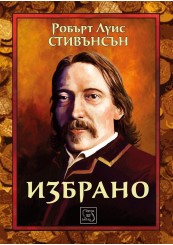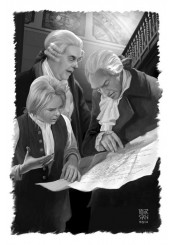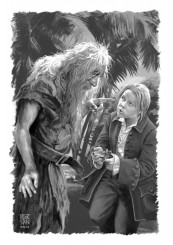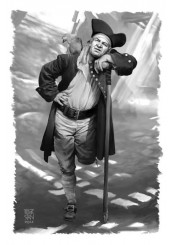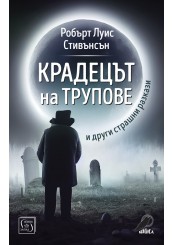Robert Louis Stevenson
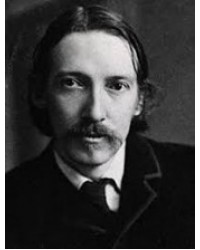
Robert Louis Balfour Stevenson (1850–1894) was a Scottish novelist, poet, essayist, musician and travel writer. His most famous works are Treasure Island, Kidnapped, Strange Case of Dr Jekyll and Mr Hyde, and A Child's Garden of Verses. Stevenson was a literary celebrity during his lifetime, and now ranks as the 26th most translated author in the world. His works have been admired by many other writers, including Jorge Luis Borges, Bertolt Brecht, Marcel Proust, Arthur Conan Doyle, Henry James, Cesare Pavese, Emilio Salgari, Ernest Hemingway, Rudyard Kipling, Jack London, Vladimir Nabokov, J. M. Barrie, and G. K. Chesterton, who said that Stevenson "seemed to pick the right word up on the point of his pen, like a man playing spillikins".
Stevenson was born at 8 Howard Place, Edinburgh, Scotland, on 13 November 1850, to Thomas Stevenson (1818–87), a leading lighthouse engineer, and his wife Margaret Isabella (born Balfour; 1829–97). He was christened Robert Lewis Balfour Stevenson. At about age 18, Stevenson changed the spelling of "Lewis" to "Louis", and in 1873, he dropped "Balfour".
Lighthouse design was the family's profession: Thomas's father (Robert's grandfather) was the famous civil engineer Robert Stevenson, and both of Thomas's brothers (Robert's uncles) Alan and David, were in the same field. Indeed, even Thomas's maternal grandfather, Thomas Smith, had been in the same profession. However, Robert's mother's family were not of the same profession. Margaret's natal family, the Balfours, were gentry, tracing their lineage back to a certain Alexander Balfour who had held the lands of Inchyra in Fife in the fifteenth century. Margaret's father, Lewis Balfour (1777–1860), was a minister of the Church of Scotland at nearby Colinton, and her siblings included the physician George William Balfour and the marine engineer James Balfour. Stevenson spent the greater part of his boyhood holidays in his maternal grandfather's house. "Now I often wonder," wrote Stevenson, "what I inherited from this old minister. I must suppose, indeed, that he was fond of preaching sermons, and so am I, though I never heard it maintained that either of us loved to hear them."
Lewis Balfour and his daughter both had weak chests, so they often needed to stay in warmer climates for their health. Stevenson inherited a tendency to coughs and fevers, exacerbated when the family moved to a damp, chilly house at 1 Inverleith Terrace in 1851. The family moved again to the sunnier 17 Heriot Row when Stevenson was six years old, but the tendency to extreme sickness in winter remained with him until he was eleven. Illness would be a recurrent feature of his adult life and left him extraordinarily thin. Contemporary views were that he had tuberculosis, but more recent views are that it was bronchiectasis or even sarcoidosis.
Stevenson's parents were both devout and serious Presbyterians, but the household was not strict in its adherence to Calvinist principles. His nurse, Alison Cunningham (known as Cummy), was more fervently religious. Her Calvinism and folk beliefs were an early source of nightmares for the child, and he showed a precocious concern for religion. But she also cared for him tenderly in illness, reading to him from Bunyan and the Bible as he lay sick in bed and telling tales of the Covenanters. Stevenson recalled this time of sickness in "The Land of Counterpane" in A Child's Garden of Verses (1885), dedicating the book to his nurse.
An only child, strange-looking and eccentric, Stevenson found it hard to fit in when he was sent to a nearby school at age six, a problem repeated at age eleven when he went on to the Edinburgh Academy; but he mixed well in lively games with his cousins in summer holidays at Colinton. In any case, his frequent illnesses often kept him away from his first school, so he was taught for long stretches by private tutors. He was a late reader, first learning at age seven or eight, but even before this, he dictated stories to his mother and nurse. He compulsively wrote stories throughout his childhood. His father was proud of this interest; he had also written stories in his spare time until his own father found them and told him to "give up such nonsense and mind your business." He paid for the printing of Robert's first publication at sixteen, an account of the Covenanters' rebellion, which was published on its two hundredth anniversary, The Pentland Rising: A Page of History, 1666 (1866).

